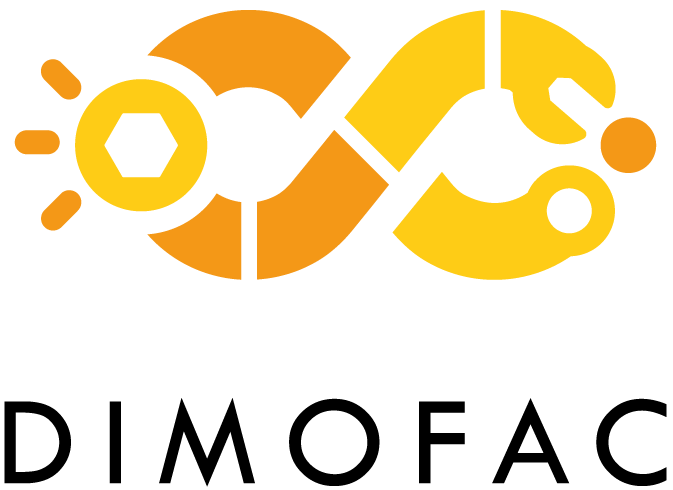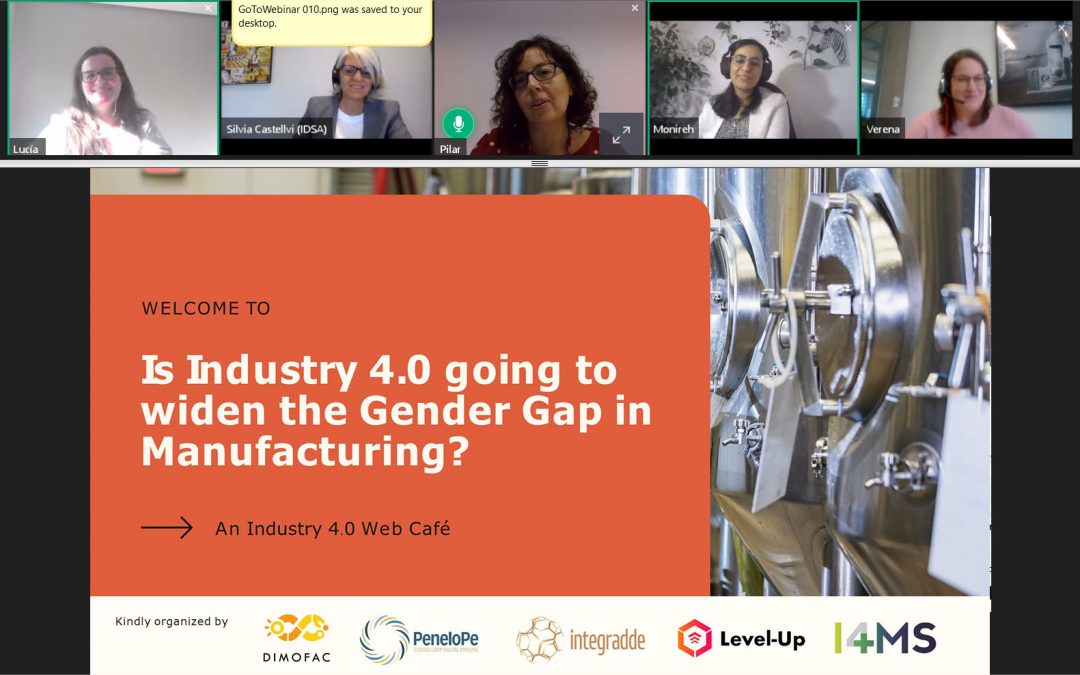That is one of the many misconceptions that we, women and men, could have regarding industrial environments.
During a dedicated session organised by various manufacturing and research-related European initiatives (Integradde, DIMOFAC, PeneloPe, Level-Up, I4MS), four female researchers and engineers, Lucía, Monireh, Pilar and Silvia discussed gender gap problematics in the industry under the moderation of Verena, who belongs to the association Women in AI.
A big portion of the conversation focused on the necessity of a proactive approach to encourage women to consider pursuing a career in manufacturing. This means fighting misconceptions and stereotypes, sometimes at a very early age.
Pilar and Lucía insisted on the importance of teachers at school who encouraged them to choose a science-related path. Silvia told about a nuclear power plant close to which she lived and that she had the chance to visit and whose functioning looked amazingly interesting.
One of the keys, in generating interest especially at a young age, is to present the field as it really is:
- Useful because it’s about creating products that can improve people’s lives
- Diversified – working today in manufacturing doesn’t systematically mean repairing machines on the shop floor. Research, ecological and management-related stakes and positions exist.
- …and fun also!
On this topic, a question was asked regarding the possible necessity and importance of role models and it’s a more qualified perspective that the panellists delivered. Yes, role models are important. But they already exist and go beyond the character of Marie Curie. The focus should be on making more visible the many women that have and are making an impact.
Conversations also moved to more reactive attitudes women can adopt when integrating a given workplace. Verena, armed with her experience of being part of Women in AI, mentioned the help that a network can provide. Sharing experiences and realising that they can sometimes be very similar can simulate the “You’re not alone” feeling and thus help overcome challenges thanks to good practices. Other ideas such as mentoring were also discussed.
Monireh insisted however that in the end, the solution can merely consist in focusing on what you have to do, ignoring inappropriate behaviours and the results of your work will speak for you. That creates trust and reliability.
If you would like to view the entire webinar, view the video below and enjoy!

